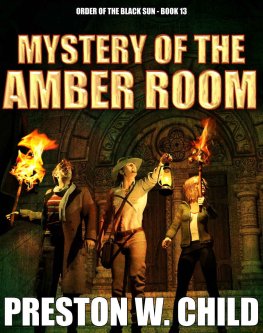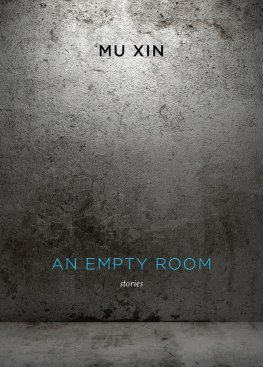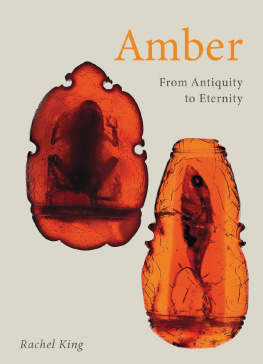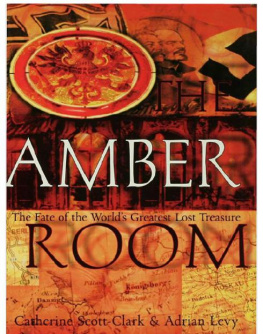THE
AMBER
ROOM
STEVE BERRY

BALLANTINE BOOKS * NEW YORK
For my father,
who unknowingly kindled the fire decades ago,
and my mother,
who taught me the discipline to sustain the blaze
For whatever cause a country is ravaged, we ought to spare those edifices which do honor to human society, and do not contribute to increase an enemy's strength--such as temples, tombs, public buildings, and all works of remarkable beauty. . . . It is declaring one's self to be an enemy of mankind, thus wantonly to deprive them of these wonders of art.
--Emmerich de Vattel, The Law of Nations, 1758
I have studied in detail the state of the historic monuments in Peterhof, Tsarskoe Selo, and Pavlovsk, and in all three towns I have witnessed monstrous outrages against the integrity of these monuments. Moreover, the damage caused--a full inventory of which would be extremely difficult to give because it is so extensive--bears the marks of premeditation.
--Testimony of Iosif Orbeli, director of the Hermitage,
before the Nurnberg tribunal, February 22, 1946
ACKNOWLEDGMENTS
I was once told that writing is a lonely endeavor and the observation is correct. But a manuscript is never completed in a vacuum, especially one that is fortunate enough to be published, and in my case there are many who helped along the way.
First, Pam Ahearn, an extraordinary agent who rode out every storm into calm waters. Next, Mark Tavani, a remarkable editor who gave me a chance. Then there are Fran Downing, Nancy Pridgen, and Daiva Woodworth, three lovely women who made every Wednesday night special. I am honored to be "one of the girls." The novelists David Poyer and Lenore Hart not only provided practical lessons, but they led me to Frank Green, who took the time to teach me what I should know. Also, Arnold and Janelle James, my in-laws, who never voiced a discouraging word. Finally, there are all those who listened to me ramble, read my attempts, and offered their opinions. I'm afraid to list names in fear of forgetting someone. Please know that each of you is important and your thoughtful consideration, without question, moved the journey along.
Above all, though, are two special people who mean the most. My wife, Amy, and daughter, Elizabeth, who together make all things possible, including this.
PROLOGUE
Mauthausen Concentration Camp, Austria
April 10, 1945
The prisoners called him Ears because he was the only Russian in Hut 8 who understood German. Nobody ever used his given name, Karol Borya. `Yxo--Ears--had been his label from the first day he entered the camp over a year ago. It was a tag he regarded with pride, a responsibility he took to heart.
"What do you hear?" one of the prisoners whispered to him through the dark.
He was cuddled close to the window, pressed against the frigid pane, his exhales faint as gossamer in the dry sullen air.
"Do they want more amusement?" another prisoner asked.
Two nights ago the guards came for a Russian in Hut 8. He was an infantryman from Rostov near the Black Sea, relatively new to the camp. His screams were heard all night, ending only after a burst of staccato gunfire, his bloodied body hung by the main gate the next morning for all to see.
He glanced quickly away from the pane. "Quiet. The wind makes it difficult to hear."
The lice-ridden bunks were three-tiered, each prisoner allocated less than one square meter of space. A hundred pairs of sunken eyes stared back at him.
All the men respected his command. None stirred, their fear long ago absorbed into the horror of Mauthausen. He suddenly turned from the window. "They're coming."
An instant later the hut's door was flung open. The frozen night poured in behind Sergeant Humer, the attendant for Prisoners' Hut 8.
"Achtung!"
Claus Humer was Schutzstaffel, SS. Two more armed SS stood behind him. All the guards in Mauthausen were SS. Humer carried no weapon. Never did. A six-foot frame and beefy limbs were all the protection he needed.
"Volunteers are required," Humer said. "You, you, you, and you."
Borya was the last selected. He wondered what was happening. Few prisoners died at night. The death chamber remained idle, the time used to flush the gas and wash the tiles for the next day's slaughter. The guards tended to stay in their barracks, huddled around iron stoves kept warm by firewood prisoners died cutting. Likewise, the doctors and their attendants slept, readying themselves for another day of experiments in which inmates were used indiscriminately as lab animals.
Humer looked straight at Borya. "You understand me, don't you?"
He said nothing, staring back into the guard's black eyes. A year of terror had taught him the value of silence.
"Nothing to say?" Humer asked in German. "Good. You need to understand . . . with your mouth shut."
Another guard brushed past with four wool overcoats draped across his outstretched arms.
"Coats?" muttered one of the Russians.
No prisoner wore a coat. A filthy burlap shirt and tattered pants, more rags than clothing, were issued on arrival. At death they were stripped off to be reissued, stinking and unwashed, to the next arrival. The guard tossed the coats on the floor.
Humer pointed. "Mantel anziehen."
Borya reached down for one of the green bundles. "The sergeant says to put them on," he explained in Russian.
The other three followed his lead.
The wool chafed his skin but felt good. It had been a long time since he was last even remotely warm.
"Outside," Humer said.
The three Russians looked at Borya and he motioned toward the door. They all walked into the night.
Humer led the file across the ice and snow toward the main grounds, a frigid wind howling between rows of low wooden huts. Eighty thousand people were crammed into the surrounding buildings, more than lived in Borya's entire home province in Belarus. He'd come to think that he would never see that place again. Time had almost become irrelevant, but for his sanity he tried to maintain some sense. It was late March. No. Early April. And still freezing. Why couldn't he just die or be killed? Hundreds met that fate every day. Was his destiny to survive this hell?
But for what?
At the main grounds Humer turned left and marched into an open expanse. More prisoners' huts stood on one side. The camp's kitchen, jail, and infirmary lined the other. At the far end was the roller, a ton of steel dragged across the frozen earth each day. He hoped their task did not involve that unpleasant chore.
Humer stopped before four tall stakes.
Two days ago a detail was taken into the surrounding forest, Borya one of ten prisoners chosen then, as well. They'd felled three aspens, one prisoner breaking an arm in the effort and shot on the spot. The branches were sheared and the logs quartered, then dragged back to camp and planted to the height of a man in the main grounds. But the stakes had remained bare the past couple of days. Now two armed guards watched them. Arc lights burned overhead and fogged the bitterly dry air.
"Wait here," Humer said.
The sergeant pounded up a short set of stairs and entered the jail. Light spilled out in a yellow rectangle from the open door. A moment later four naked men were led outside. Their blond heads were not shaved like the rest of the Russians, Poles, and Jews who constituted the vast majority of the camp's prisoners. No weak muscles or slow movements, either. No apathetic looks, or eyes sunk deep in their sockets, or edema swelling emaciated frames. These men were stocky. Soldiers. Germans. He'd seen their look before. Granite faces, no emotion. Stone cold, like the night.
Next page

















